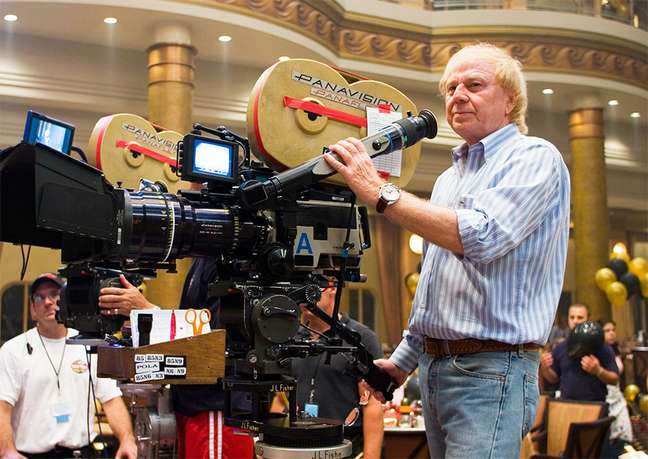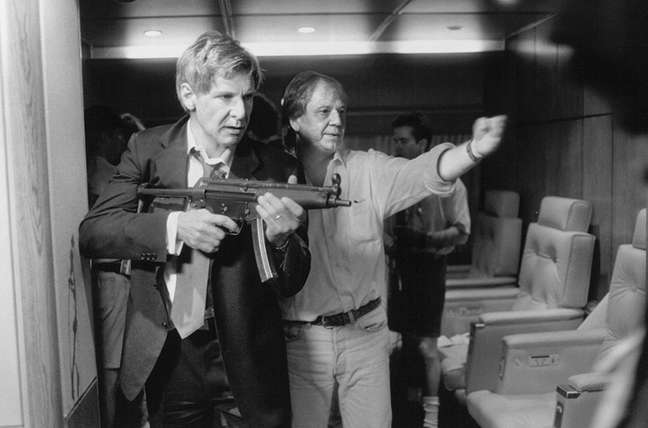
German director Wolfgang Petersen, who made an era in films such as “The Boat: Hell at Sea”, “The Neverending Story”, “In the Line of Fire”, “Air Force One” and “Troy”, is dead Friday. (8/12) at his home in Brentwood, California due to pancreatic cancer at age 81.
The news was confirmed by his producer on Tuesday (16/8), who revealed he is with his wife Marie Antoinette, with whom he has been married for 50 years.
Wolfgang Petersen began his career on German television in 1965. While working on the popular detective series “Tatort”, he met actor Jurgen Prochnow, who would become a frequent figure in his early films.
Prochnow starred in all three of the director’s German films, including the black and white drama “The Aftermath” (1977), which adapted Alexander Ziegler’s autobiographical novel about homosexual love and was considered so radical at the time that when it came into window television, West German television networks refused to air it.
The actor was also the captain of the U-boat in the now classic naval thriller “The Boat: Hell at Sea” (Das Boot, 1981). The claustrophobic storyline, set aboard a submarine during World War II, was nominated for six Oscars – a huge number for a foreign film – including two for Petersen, for Best Screenplay and Direction.
Thanks to the film’s impact, Petersen was sought after by Hollywood, swapping his career in German arthouse cinema for successful budget adventures.
His first American film was “The Neverending Story”, a children’s fantasy about the power of the imagination released in 1984 that marked a time and is still often mentioned in “Stranger Things”. A box office success, it gained a sequel six years later under the direction of George Miller (the father of “Mad Max”).
Rather than sticking to the franchise, Petersen sought to vary his repertoire with “Enemy Mine” (1981), a science fiction set in another world that was basically an alien version of “Hell in the Pacific” (1968). But his niche in Hollywood turned out not to be fantasy cinema. Eventually he established himself as an action movie director.
In a decade, Petersen had five hits in a row: “In the Line of Fire” (1993), in which Clint Eastwood played a secret service agent, “Epidemic” (1995), with Dustin Hoffman trying to stop the spread. . of Ebola in the world, “Air Force One” (1997), which brought Harrison Ford against terrorists on the presidential plane, “The Raging Sea” (2000), where George Clooney and Mark Wahlberg are victims of a brutal ocean storm, and “Troy” (2004), starring Brad Pitt as Achilles during the Trojan War.
This period of success, which made him one of the most sought-after directors for action films, suddenly came to an end with the failure of “Poseidon” (2006), an expensive remake of one of the greatest catastrophic hits of the 1970s. . the production cost $ 160 million and generated a worldwide box office of $ 182 million, resulting in a huge loss for Warner Bros. and abruptly ended Peterson’s Hollywood career.
The director returned behind the camera only a decade later in Germany when he made “Four Against the Bank” (2016), a modest detective comedy with a German cast that completed his filmography.
Despite the ill will of the studios after “Poseidon”, Peterson was highly regarded by his peers and admired by the actors he worked with, including Clint Eastwood, Harrison Ford, George Clooney, Brad Pitt, Rene Russo, Glenn Close, Mark Wahlberg, Dustin Hoffman and Morgan Freeman.
His legacy continues to be explored today by German TV, which transformed “The Boat: Inferno no Mar” into a hit series launched in 2018 and which has already produced three award-winning seasons, most recently in 2022.

Source: Terra
Camila Luna is a writer at Gossipify, where she covers the latest movies and television series. With a passion for all things entertainment, Camila brings her unique perspective to her writing and offers readers an inside look at the industry. Camila is a graduate from the University of California, Los Angeles (UCLA) with a degree in English and is also a avid movie watcher.




![Un Si Grand Soleil Preview: Episode Summary for Friday, October 24, 2025 [SPOILERS] Un Si Grand Soleil Preview: Episode Summary for Friday, October 24, 2025 [SPOILERS]](https://fr.web.img6.acsta.net/img/ab/a7/aba77ee421cfaa6486bd0d6d33453e84.jpg)

![It All Begins Here: What’s in store for Friday, October 24, 2025 Episode 1292 [SPOILERS] It All Begins Here: What’s in store for Friday, October 24, 2025 Episode 1292 [SPOILERS]](https://fr.web.img3.acsta.net/img/b2/cb/b2cb98101bda38a337ee225525246323.jpg)

